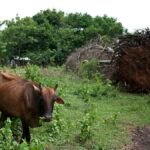
India, Sri Lanka to sign defence agreement during Modi’s visit. What it means

A framework agreement on defence cooperation, marking the first refresh in ties in this sector since the Indian Peace Keeping Force (IPKF) intervention in the 1980s, and measures to support Sri Lanka’s economic recovery will be among the centrepieces of Prime Minister Narendra Modi’s visit to the island nation next week.
PM Modi’s visit, a follow-up to Sri Lankan President Anura Kumara Dissanayake’s trip to New Delhi last December, will be an opportunity for the Indian government to bolster relations in crucial areas ranging from defence and security to energy and infrastructure, people familiar with the matter said on condition of anonymity on Friday.
PM Modi will be the first foreign leader to be hosted by President Dissanayake.
The two sides commenced work on the framework agreement on defence cooperation soon after Dissanayake’s visit, his first foreign trip after becoming President in September last year, the people said. In recent days, the Sri Lankan side suggested some technical amendments to the draft agreement, which is expected to be inked during the prime minister’s visit from April 4 to 6, the people said.
New Delhi’s troubled intervention in Sri Lanka’s civil war, in the form of the IPKF that was deployed in the island nation between July 1987 and March 1990, had a negative impact on bilateral defence cooperation in subsequent years. However, bilateral security ties have gained impetus more recently, leading to the proposed agreement, the people said.
Foreign secretary Vikram Misri told a media briefing that a memorandum of understanding on defence cooperation is expected to be signed during the prime minister’s visit. “It is being signed for the first time,” Misri said without giving details.
A joint statement issued during Dissanayake’s visit had said the Indian side will provide defence platforms and assets to augment Sri Lanka’s military capabilities and the two countries will intensify collaboration through joint exercises and maritime surveillance. The enhanced cooperation comes against the backdrop of India’s concerns about China’s increasing military presence in the Indian Ocean region, including Hambantota port in Sri Lanka.
The two sides currently have an annual defence dialogue between their defence secretaries and there have been naval interactions and ship visits from India to Sri Lanka, as well as annual bilateral exercises between the navies and armies. The new agreement will expand the scope of exchanges and exercises, the people said.
In the economic sector, the two sides are expected to finalise key agreements between the Reserve Bank of India (RBI) and the Central Bank of Sri Lanka (CBSL) for debt restructuring and extension of a currency swap arrangement, the people said. A tripartite arrangement between India, Sri Lanka and the United Arab Emirates (UAE) for developing the Trincomalee oil tank farm is also expected to be unveiled during the visit, they said.
Among the dozen agreements that the two sides are expected to finalise is an MoU for inter-connection of the power grids of India and Sri Lanka and another pact for cooperation on digital public infrastructure, the people said.
Misri described Sri Lanka as an integral part of India’s “Neighbourhood First policy”, and noted that New Delhi assisted Colombo in critical moments in recent years, including the unprecedented economic crisis of 2022. India’s role in Sri Lanka’s economic stabilisation and recovery reflected its “commitment as a dependable neighbour and first responder to crises in the region”, he said.
“India was the first responder by extending $4.5 billion of assistance in 2022-23 and we also played a key role in extending the necessary financial assurances that enabled the International Monetary Fund to extend the extended fund facility to Sri Lanka,” he said.
The recovery of Sri Lanka’s economy provides opportunities for the two sides to explore new areas of cooperation, and Modi’s visit will focus on promoting investments and deepening physical, energy and digital connectivity, he said.
Another important issue that is expected to figure in Modi’s visit is the arrest and detention of Indian fishermen by Sri Lanka’s security forces for trespassing the maritime boundary, Misri said.
“I have no doubt that the prime minister will raise issues related to the welfare of our fishermen during his meeting with the Sri Lanka president,” Misri said, adding that India’s central message is that these issues must be handled from the humanitarian perspective while avoiding the use of force in all circumstances.
Dissanayake’s decision last year to make India the destination for his first foreign visit was significant because his Janatha Vimukthi Peramuna (JVP) party was for long known for its anti-India stance. While in India, Dissanayake gave Modi an assurance that Sri Lanka wouldn’t allow its soil to be used against Indian interests.
source:https://www.hindustantimes.com/india-news/india-sri-lanka-to-sign-defence-agreement-during-modi-s-visit-what-it-means-101743178662494.html



